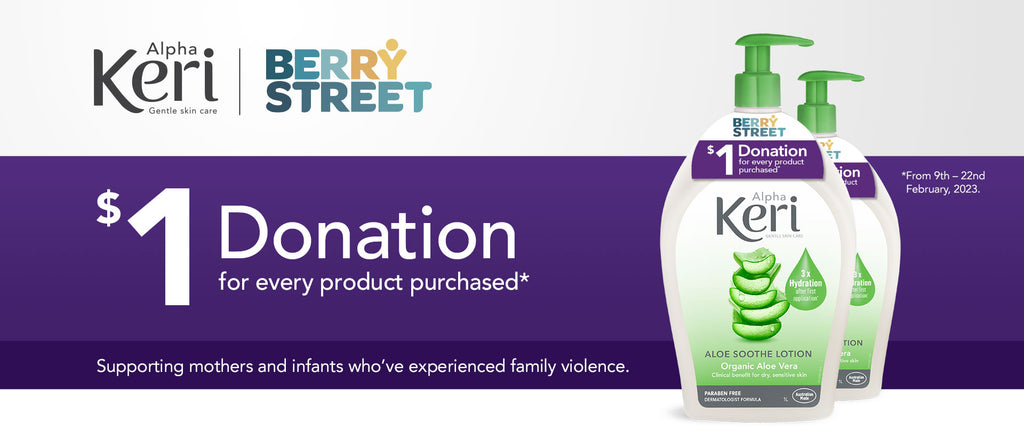Most of us will deal with problematic skin at one point or another, but the important thing is not to panic – there is an answer. While issues like skin allergies, dryness, oiliness, acne and rosacea are sometimes caused by things beyond our control like genetics and hormones, they are also often caused by things we can control, like our health, skincare products and stress levels. For some people, it can be as simple as changing up a few things in your self-care routine.
With that in mind, let’s consider a few of the solutions you can try to revitalise your complexion.
1. Wash your face twice a day
While those with oily skin might be tempted to wash their face more than twice a day, resist that urge! This can actually dry out your skin, making it produce even more oil to compensate for the loss of moisture.
Dermatologists suggest that you wash your face twice a day – once in the morning to clear your pores, and once before you go to bed at night to get rid of the oil and grit that has built up over the course of the day – no matter your skin type. If you wear makeup, then it’s important to do a more thorough cleanse at night to remove all traces of product from your pores.
2. Use skincare products with anti-inflammatory ingredients
The skincare products that you use have a huge influence on the health of your skin, especially if you have a problematic skin type. Our Aloe Soothe range is perfect for extra dry skin because it contains aloe vera, a natural, skin conditioning ingredient that helps reduce acne-causing bacteria, dryness and other irritants. Cleanse your face with our Aloe Soothe Wash and moisturise with Aloe Soothe Cream to soothe and relieve your skin.
3. Always wear sunscreen
Make wearing sunscreen an automatic part of your daily skincare routine. While it might not seem necessary to wear sunscreen on an overcast day, it’s important to remember that UV rays in Australia can be even more intense on gloomy days because they reflect off the clouds!
Not only is sunscreen vital to protect your skin against skin cancer, but it’s also important for protecting your face against UV rays that can trigger skin inflammations and worsen dark spots, wrinkles and scarring. Go with a lightweight sunscreen like Natural Instinct Invisible Natural Sunscreen SPF30 that won’t clog your pores but provides UVA and UVB protection.
4. Wash your pillowcases and sheets frequently
Bed linen is a hotbed (pun intended) for things like dust mites, body oils and dead skin cells. Yuck, right? That’s why experts recommend changing your sheets at least once a week, and your pillowcases once every two to three days if you can manage it, to help protect your skin.
Your choice of detergent can also play a role in your skin’s health – gentle, organic detergents that aren’t excessively perfumed are best because they contain fewer irritants, and fabric softener is a big no-no.
5. Get a good night’s sleep
It turns out “getting your beauty sleep” is more than just an expression – it's a scientifically proven fact! When you sleep, your skin rebuilds its collagen and repairs things like sun damage, wrinkles and age spots. Not getting your recommended seven to nine hours can trigger breakouts and make your skin age faster.
But let's face it – this year has thrown our normal routines out of whack and a lot of us need to reset our sleep schedules. If you're having trouble regulating your sleep, try minimising your screen time an hour before bed to avoid overstimulating your brain, or use a blue light filter to help your circadian rhythm adjust. It’s also a good idea to avoid caffeine or alcohol in the evenings because both can disrupt your sleep cycle.
6. Eat a healthy, balanced diet
While experts have different opinions about how food influences problematic skin, eating a healthy, balanced diet certainly can’t have a negative impact on your health. It's believed foods rich in vitamins A and D improve your skin's hydration (so things like fish, eggs, cheese and leafy greens), while vitamin E (which is found in plant-based oils, nuts, seeds and veggies) reduces inflammation. To find out if you’re eating a balanced diet, take the Healthy Eating Quiz, which is an initiative of the University of Newcastle. You’ll quickly find out if there are any gaps in your diet.
If your problematic skin isn’t clearing up with these suggestions, try visiting your GP or getting a referral to a dermatologist. While following all these steps will do your health a world of good, other elements can play a role in more serious skin conditions, and a dermatologist will be able to prescribe the right medication to help clear up your skin.
REFERENCES:
https://www.healthline.com/health/beauty-skin-care/how-often-should-you-wash-your-face#for-dry-or-sensitive-skin
https://pubmed.ncbi.nlm.nih.gov/25266053/
https://www.wellandgood.com/face-breaking-out-laundry-detergent/
https://www.ncbi.nlm.nih.gov/pmc/articles/PMC2836431/



